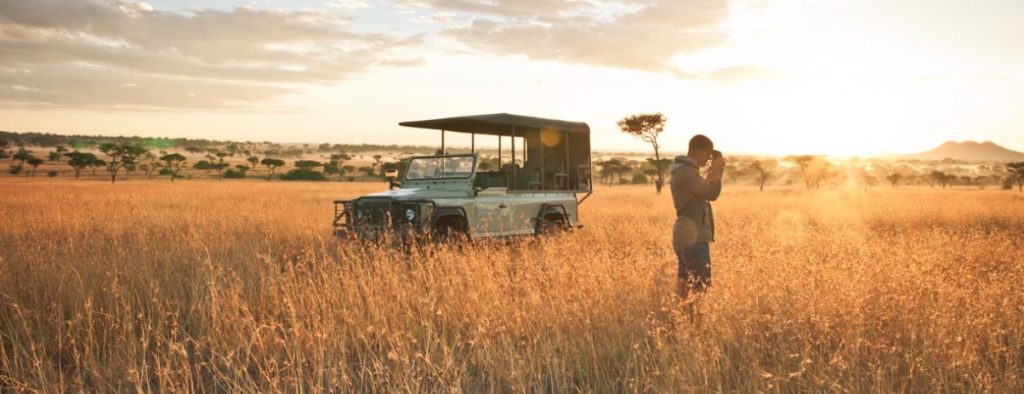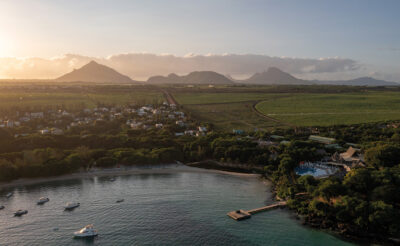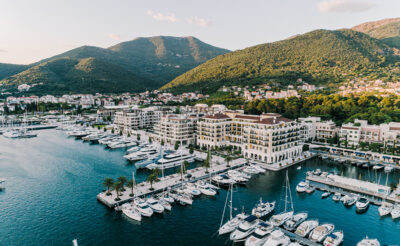The paths we took in 2016 were both immersive and experiential. From Italian farmhouse stays, to the rise of Airbnb’s sharing economy and sites like eatwith.com, that facilitate home dining rather than in restaurants, we as travellers shunned five star resorts in favour of experiences that left us feeling well versed in native cultures and enthralled by our experiences. But where will the contemporary traveller journey on to next?
With immersive travel, the idea is to connect the dots, absorbing the destination on a deeper, more meaningful level, through spending time with locals and delving into the underbelly of their culture. In our globalised society long haul flights for both business and pleasure are commonplace, so the journey alone to a resort on far-flung shores simply isn’t enough anymore. Today’s traveller desires a more genuine experience and part of this authenticity is found by switching off from life’s hectic pace and finding appreciation in the unspectacular aspects of everyday life, rather than seeking out roped-off sightseeing spaces.
Those in the industry claim that now, these enticing experiences are being taken a step further with a shift towards ‘transformational travel’, the critical difference between the two lying in both the approach and intention of the traveller. “Experiential travel focuses on having amazing and immersive adventures that bring a traveller closer to the people, cultures and destinations and often, these experiences end up being life-changing as they inspire people to see themselves and the world through new perspectives,” explains Michael Bennett, executive vice president at one of the new breed travel design companies to cater to this niche, Nomad Hill. “Transformational travel, on the other hand, is a more conscious and intentional approach, adopted by a traveller before they even leave home.”
Cultural interactions with South Africa’s Zulu villages, cooking classes in Rome and kitesurfing lessons in Paros are all part of the expectation for today’s boutique operators like Bennett. There’s been a change in programming, with guests looking not just for sustainable lodgings, as has been the trend for several years now, but also conservation projects that they can actively take part in. It’s experiential travel, but amplified. “There’s a critical distinction to be made here,” notes Bennett, whose doctoral dissertation explored transformational learning through adventure travel experiences. “There are travel experiences that end up being life-changing (although that was not necessarily the intent), and then there are travel experiences that are consciously intended to be transformational and are approached and engaged with in an entirely different way. Both are valid, but they are different.”
There are travel experiences that end up being life-changing, and then there are travel experiences that are consciously intended to be transformational and are approached and engaged with in an entirely different way
Michael Bennett, Nomad Hill
Although today’s marketeers have coined the term nicely, transformative travel is nothing new. During the 1950s and 1960s, a wave of writers and creatives descended upon Latin America’s frenzied cities and uncontrollable, tropical landscapes; the tumultuous climate, chaotic cultures and the anticipation of the unknown, serving as a creative catalyst for young artistic aspirations. “Here was a white man with 12 Yankee dollars in his pocket … hauling a typewriter, grinning, sweating, no hope of speaking the language, no place to stay,” wrote Hunter S. Thompson of his time spent writing in South America in The National Observer (1962). Jake Haupert from Evergreen Escapes believes that the desire to travel for self-improvement is innate. “We’ve been travelling with this intention since the beginning of time, it just seems that with the current digital society, chaos and associated disconnect, we’ve lost our way,” he says. “Naturally, people seek out travel experiences, but now some who were bringing intention to other parts of their life, like health, wellness, work, family, continuing education, and they’re waking up to the fact that they can also put intention into travel, along with mindfulness, reflection and a results-driven travel practice.”
Previous attitudes towards travel often came with a measure of guilt. The post ‘holiday-blues’ riddled with thoughts of extra calories consumed and the aftermath of days spent away from professional and personal pursuits in an effort to ‘switch off’ and escape. What transformative travel offers is a purposeful, agenda-driven, journey that can offer a greater return on investment in terms of our time, improving both the individual and in some cases the space they encounter. The Four Seasons Jimbaran Bay was one of the earliest pioneers of luxury resort standards in Bali with lavish villas and a pool in every guest room, raising the bar for extravagance globally. But in recent years its employees have discovered that guests are coming to the island for purposes outside of luxury amenities. “More guests are looking for authentic experiences with traditional Balinese healers,” says Marian Carroll, director of public relations, Four Seasons Resort Bali. “To widen our spa experience to cater to this demand, we’ve hand-picked exceptional local practitioners to share their healing arts. Guests generally visit the healers at their village homes, but some will also come to the resort for appointments.”
In the same vein that Hunter S. Thompson took off to South America for a year-long trip that he hoped would yield some career-defining stories, set ups like Art for Life Creative Ignition sessions in Mexico are conceived to add inspirational fuel to our artistic embers. From watching the solar eclipse over Oregon, to exposure to the arts in Florence and surfing in Sri Lanka, it is fairly evident that there’s a transformational trip targeted to your innate desire for self-improvement.
“There’s potential for huge growth in this sector as our collective consciousness develops and evolves to an awareness of something greater beyond the mere individual,” explains Alain Kropf, general manager, Hotel Royal Savoy Lausanne. “This can be perfectly illustrated by eco-tourism now changing to geo-tourism (the concept of the traveller fitting in to the location they visit, rather than the other way around),” he continues. The idea of us being interconnected to each other as well as to the environment and how we impact on these things is beginning to take hold slowly but surely. As a society we are becoming increasingly aware, questioning and examining where everything from our food to fashion comes from, so naturally this thought process spills over into our travel plans too. It seems almost certain that future travellers will start to look beyond journeys for personal, self-discovery and turn their attentions outside of themselves completely.




